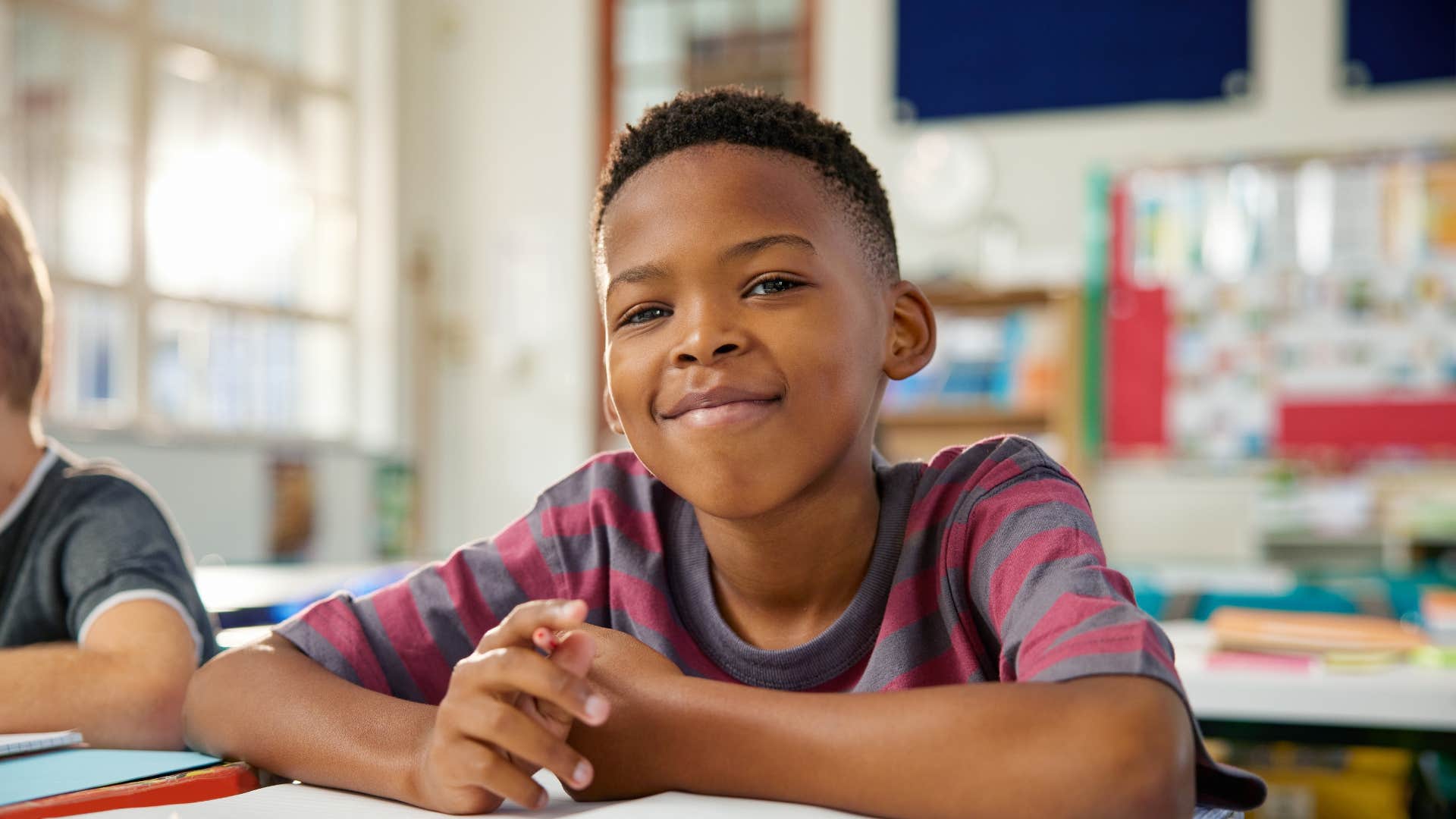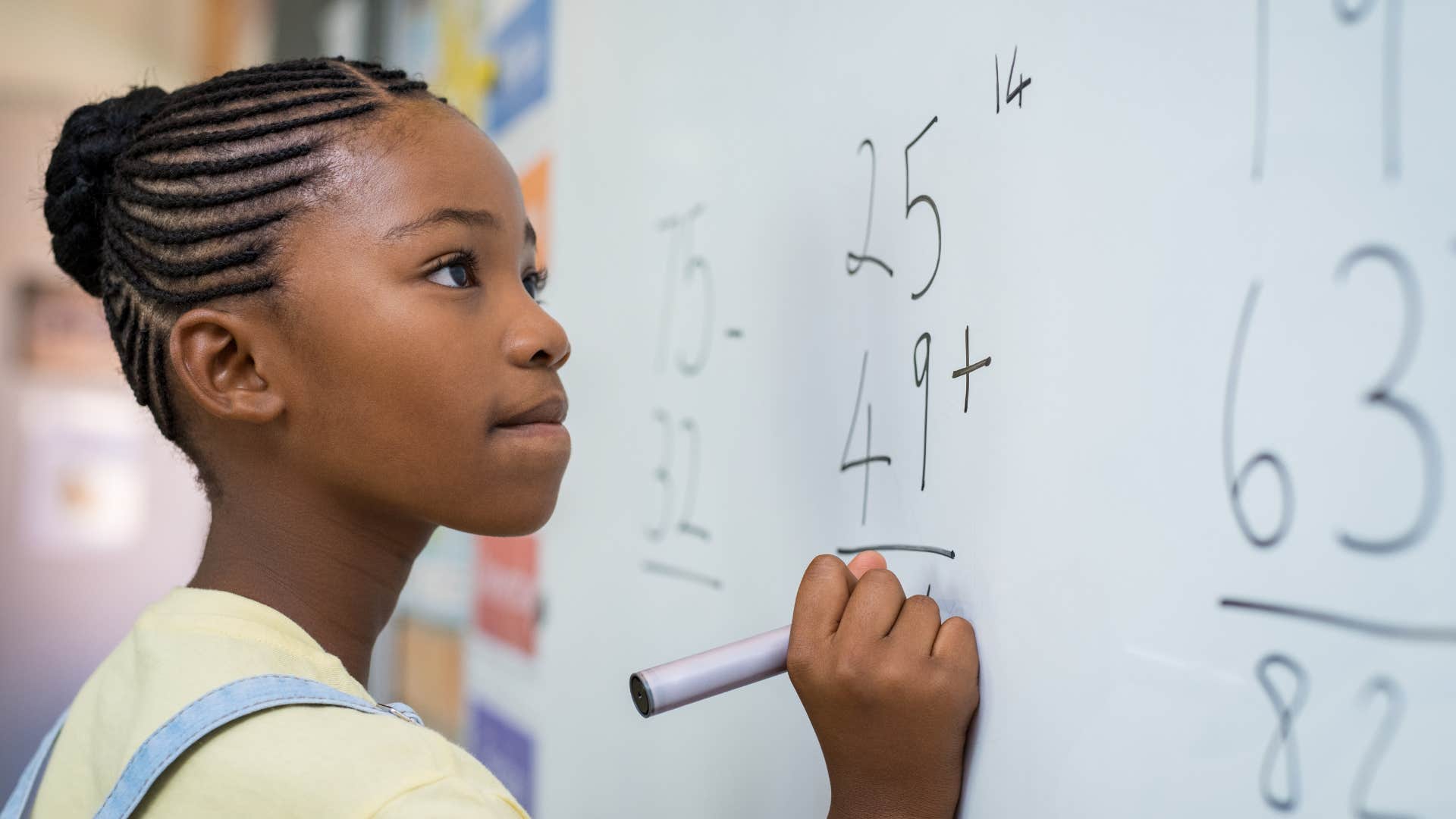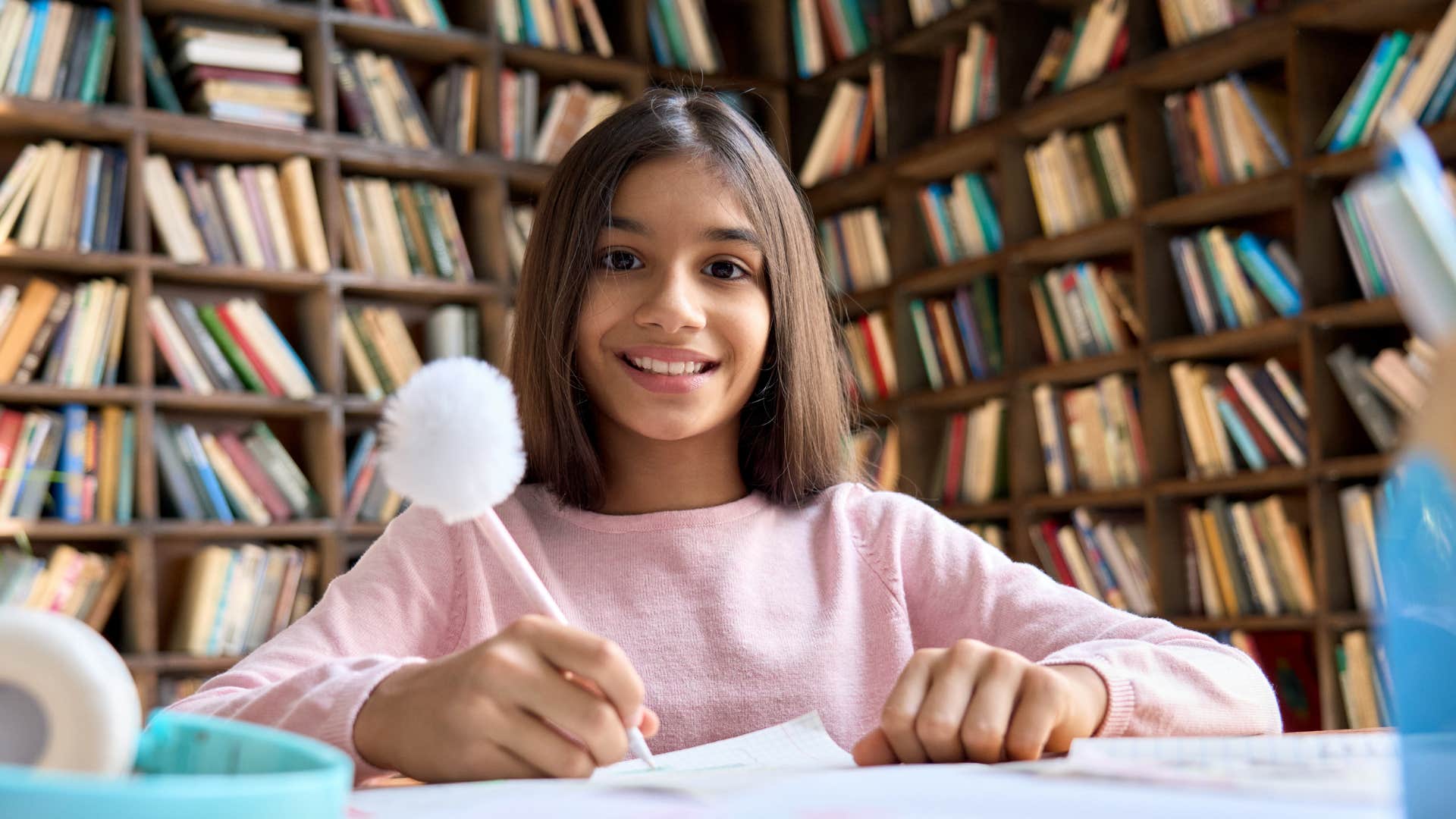People Who Were A Pleasure To Have In Class As Kids Usually Display These 6 Traits, According To Psychology
They were the kids teachers love, and those same qualities still shine through in adulthood.
 Anastasia Shuraeva | Canva
Anastasia Shuraeva | Canva "Everyone calls him GoGo," the head of the language center said. "Why do they call him GoGo?" "You'll see," was the reply. And yes, that kid could go, go, go! GoGo was always attentive, always listening, always processing.
Some kids like GoGo just have a way of making the classroom brighter: the ones who listened, helped out, and brought a sense of calm or joy to the room. Teachers loved having them around, and classmates felt the difference, too. According to psychology, those same positive qualities often stick around well into adulthood. In fact, the traits that made them "a pleasure to have in class" are the very ones that continue to share their overall approach to life today.
People who were a pleasure to have in class as kids usually display these six traits, says psychology:
1. They don't cause problems
 Ground Picture via Shutterstock
Ground Picture via Shutterstock
When general manager Thomas Miller thinks of a student who is a pleasure to have in class, he almost certainly hops to either an apple-polisher or a kid just invisible enough not to give any problems. But they probably did the reading, which for a teacher often means "isn't causing problems."
As adults, the two traits manifest differently: The apple-polisher generally becomes a people-pleaser who is super eager for external praise. The invisible kid wants to do just enough not to be hassled, even if they are not a classic introvert.
Both apple-polishers and invisible kids generally make for great second fiddles, as you can assume they'll get the most important things done and likely have pretty good judgment regarding what is and isn't important.
2. They are curious
 Rido via Shutterstock
Rido via Shutterstock
Career and life management consultant Ruth Schimel knows that curiosity makes a young student receptive to learning and engaged in class discussion. When you embrace the right to be true to yourself, to express what makes you unique, you strengthen the bridge to your originality, leading you to be a pleasure in class because of your insatiable desire to participate and raise your hand.
For the adult, childhood curiosity is a reminder of originality. Rather than being childish or immature, adults may recapture a curious attitude as a link to their originality. That leads to experimenting with a curious mind rather than conforming first.
3. They are focused
 Ground Picture via Shutterstock
Ground Picture via Shutterstock
The students whom teachers call a 'pleasure to have in class' possess the ability to focus in class, points out life coach Susan Allan. They do their homework properly, submit their homework by the due date, and enjoy the process. Unfortunately, some of those left-brain capabilities are rare in art students, music students, or those with a gift for dance or other forms of right-brain creativity.
Those who go on to succeed at MIT, law school, and medical school, each with a highly left-brain focus, will do what the teacher requires and do it effectively, and as they become adults, they maintain this focus on goals, planning, organization, and timeliness.
4. They pay attention
 EduLife Photos via Shutterstock
EduLife Photos via Shutterstock
Relationship coach Mitzi Bockmann suggests teachers love children who pay attention and, as a result, are successful at school. It's a key trait for an adult to have, in all areas of life, to truly listen, internalize, and act on what is said to them.
Knowing how to truly pay attention is a learned skill. For many of us, we think we pay attention, but we aren't as tuned in as we could be. Research from The Journal of Positive School Psychology showed that actively listening to the person talking to you and not thinking of what you want to say to them while they're still talking indicates that you're paying attention and retaining the information exchanged.
5. They know how to listen
 Ground Picture via Shutterstock
Ground Picture via Shutterstock
Memorable students have incredible active listening skills, notes parenting coach Kathy Ramsperger. So many people want to talk to show how smart they are by verbalizing their smarts, but listening is a skill that will get you further, especially in school.
Good listeners are perceived by other people as being warmer, more competent, humbler, and having stronger values than those who are seen as bad listeners, according to research from the Royal Society of Open Science.
6. They are considerate
 PeopleImages.com - Yuri A via Shutterstock
PeopleImages.com - Yuri A via Shutterstock
Consideration of others is a trait a person will likely develop as an adult if they were a pleasure to have in class as a child, explains senior editor Aria Gmitter. As a former English teacher, Gmitter always admired the student who was observant of feelings. They were slightly more intuitive than others, sensing when a person might not have any lunch or needed a pen or paper, and would hand one over without being asked.
A gesture like that is a lifesaver in a classroom where opportunities to feel ashamed are rampant, and kids, regardless of their age, are quick to judge themselves and fall into comparison despair. Students who are a delight to be in the classroom aren't always the quiet ones. Sometimes they stir up trouble because they see a need for change. They sense a world beyond themselves and are attuned to the fact that their presence holds meaning.
They will advocate loudly and often in writing. They befriend the friendless and out-of-the-box thinkers. They try to come up with class solutions that everyone could agree on. They become future nurses, doctors, lawyers, actors, and magnificent human beings, and teachers often stay in touch with them long after graduation.
Will Curtis is YourTango's expert editor. Will has over 14 years of experience as an editor covering relationships, spirituality, and human interest topics.

